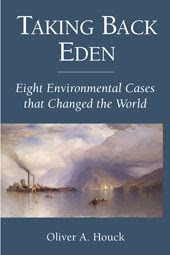Evidence that global warming is having real, immediate impacts mounted this week. Heat waves around the world caused firetrucks to spray water on train tracks in eastern Europe to keep them from warping. Iraq declared two days of national holidays to keep people indoors as temperatures soared about 50 degrees Celsius (122 degrees Fahrenheit). The National OceanIc and Atmospheric Administration’s National Centers for Environmental Information announced last week that June 2015 was the hottest June on record. The period from July 2014 to June 2015 was the hottest 12-month period since temperature recordkeeping began in 1880. NOAA, Global Analysis-June 2015, online at: https://www.ncdc.noaa.gov/sotc/global/201506
Last week the government of the United Arab Emirates announced that it will end the $7 billion in annual subsidies it provides for petroleum products consumed in the country. Oil now will be priced at market prices, which will encourage greater use of public transport and more fuel-efficient vehicles. India, Indonesia, Mexico and Egypt also have moved to reduce fuel subsidies, though an effort to do so in Kuwait generated so much public backlash that it was abandoned. The move to end oil subsidies also will help the UAE government deal with budget problems caused by the plunging price of oil. Simeon Kerr & Pilita Clark, UAE Drops Fuel Subsidies to Bolster Finances, Financial Times, July 23, 2015, at 4.
China has filed a diplomatic protest with the government of Myanmar after 153 Chinese nationals were sentenced to life imprisonment for illegal logging by a court in the city of Myitkyina in northern Myanmar. The defendants were not sentenced for violating environmental laws, but rather for stealing public property. They were caught after a raid that netted 400 vehicles and 1,600 logs. Deputy environmental minister Aye Myint Maung reported that 10,000 tons of illegally harvested timber has been seized by the Myanmar government in the first six months of 2015. Aung Hla Tun, Myanmar Sentences Chinese Nationals to Life for Illegal Logging, Reuters, July 23, 2015 (http://uk.reuters.com/article/2015/07/23/uk-myanmar-china-idUKKCN0PX03F20150723).
Filipino Catholics have pledged to gather 10 million of the 20 million signatures sought by the Global Catholic Climate Movement (GCCM) for a petition urging action on a new global climate treaty by delegates to COP-21 in Paris in December. Lou Arsenio, ecology ministry coordinator for the Archdiocese of Manila, noted that Filipinos are well aware of the dangers of climate change in light of the devastation caused by Typhoon Haiyan, which killed nearly 6,000 people in 2013.
On July 23 Royal Dutch Shell received two permits from the federal government to begin exploratory oil drilling in the waters of the Chukchi Sea off the northwestern coast of Alaska. Shell announced that it will begin drilling as soon as the area is clear of sea ice. The U.S. Department of Interior announced that Shell only will be allowed to drill the top portion of exploratory wells until emergency capping equipment is in place. The equipment has been diverted to Portland, Oregon for repairs after an accident while en route to the drilling site. While other major oil companies have stopped plans for drilling in the Arctic because they deem it too risky, Shell seems anxious to recoup at least a portion of the billions of dollars it has sunk into the project over the past decade.
I just finished the first week of my two-week summer course in Comparative U.S./China Environmental Law at Vermont Law School. On Tuesday July 28 I will be giving a “Hot Topics” talk to the VLS community on the unique regime of environmental law applicable to the continent of Antarctica. Professor Zhao Huiyu, who is co-teaching the Comparative U.S./China course with me, will discuss China’s new public interest litigation law in a “Hot Topics” lecture on July 30.
















